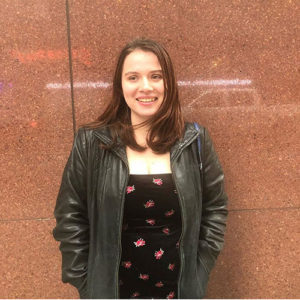When I was a little girl, my family took a trip to Switzerland every year. My dad is from Switzerland, so we (my dad, my Jewish American mother, my twin brother, and I) would go every single summer until my grandparents passed away.

I always enjoyed these trips – my Disney Princess-loving self was always eager to see castles, and I loved and continue to love French cuisine. However, the more I do research into Switzerland and its culture, the more uncomfortable I become with the country’s dark history of persecuting Jews.
While my mother came from a Jewish background, my dad did not. His side of the family are Calvinists, and my dad was the first person in my family to leave Switzerland in centuries. My dad is from a French town in Switzerland called Nyon, which was predominantly Calvinist and Catholic while he was growing up in the 1950s and 1960s. He remembers having one Jewish classmate, but that was it.
When I’ve gone to Switzerland, I’ve never directly witnessed any incidents of anti-Semitism. I never had any conversations with my grandparents about religion or anti-Semitism in Switzerland while they were alive. It wasn’t because they were disinterested; there was always a language barrier in the way. My paternal grandparents could only speak French, and, when I was younger, I could only speak English. Our interactions were limited to friendly smiles and translations through my dad.
Frankly, I don’t recall any discussions at all about anti-Semitism during my childhood, even with the Jewish side of my family. It was my own desire to learn more about the oppression of various marginalized groups that led me to research anti-Semitism in Switzerland.
From the outside, Switzerland seems like a perfect, idyllic place, but it really is not. The fact that Switzerland profited from Nazi gold has always made me uncomfortable, but I didn’t know how deeply anti-Jewish hatred ran there until recently.
For starters, Jews were restricted to live in only two villages in the canton (the Swiss version of a state) Aragu until 1866, when a law was passed that allowed Jews to live where they wished. Jews were not recognized as full citizens in Switzerland until 1874.
Unfortunately, anti-Semitism in Switzerland is not a thing of the past, as Jewish rituals and practices continue to be policed and restricted. In 1893, Switzerland voted to ban kosher ritual slaughter, shechitah, which continues to be banned today. While, even within Jewish circles, there are many conversations about whether or not shechitah is a humane practice, it is disappointing that a law that was created when fascism starting rising throughout Europe continues to be on the books today.
Despite laws being a major source of anti-Semitism throughout Swiss history, what makes me the most upset is the spike in anti-Semitic hate crimes. This year, the Swiss Federation of Jewish Communities and the Foundation Against Racism and Anti-Semitism released a report which said that there had been 39 different anti-Semitic hate crimes in the Swiss-German part of Switzerland in 2017. (To give a bit more background, there are four main languages in Switzerland – French, Swiss-German, Italian, and Romansh – each of which take up a part of the country. The Swiss-German section is the largest).
One of the most prominent recent incidents of anti-Semitism took place in July 2015, when a neo-Nazi attacked an Orthodox Jewish man who was returning home from synagogue. Fortunately, the police intervened in that incident and the assailant was given jail time, but a country where anti-Semitic hate crimes happen is not a country that I can be proud of.
I am both Swiss and Jewish, and I want to be proud of all aspects of my identity.
Would I feel safe living in the Swiss-German part of Switzerland as a Jew? No, I wouldn’t. I cherish the time that I’ve spent in Switzerland, but I have to balance that truth with another one: Switzerland was not built for me.
Julia Metraux is a student at The New School in New York City.

